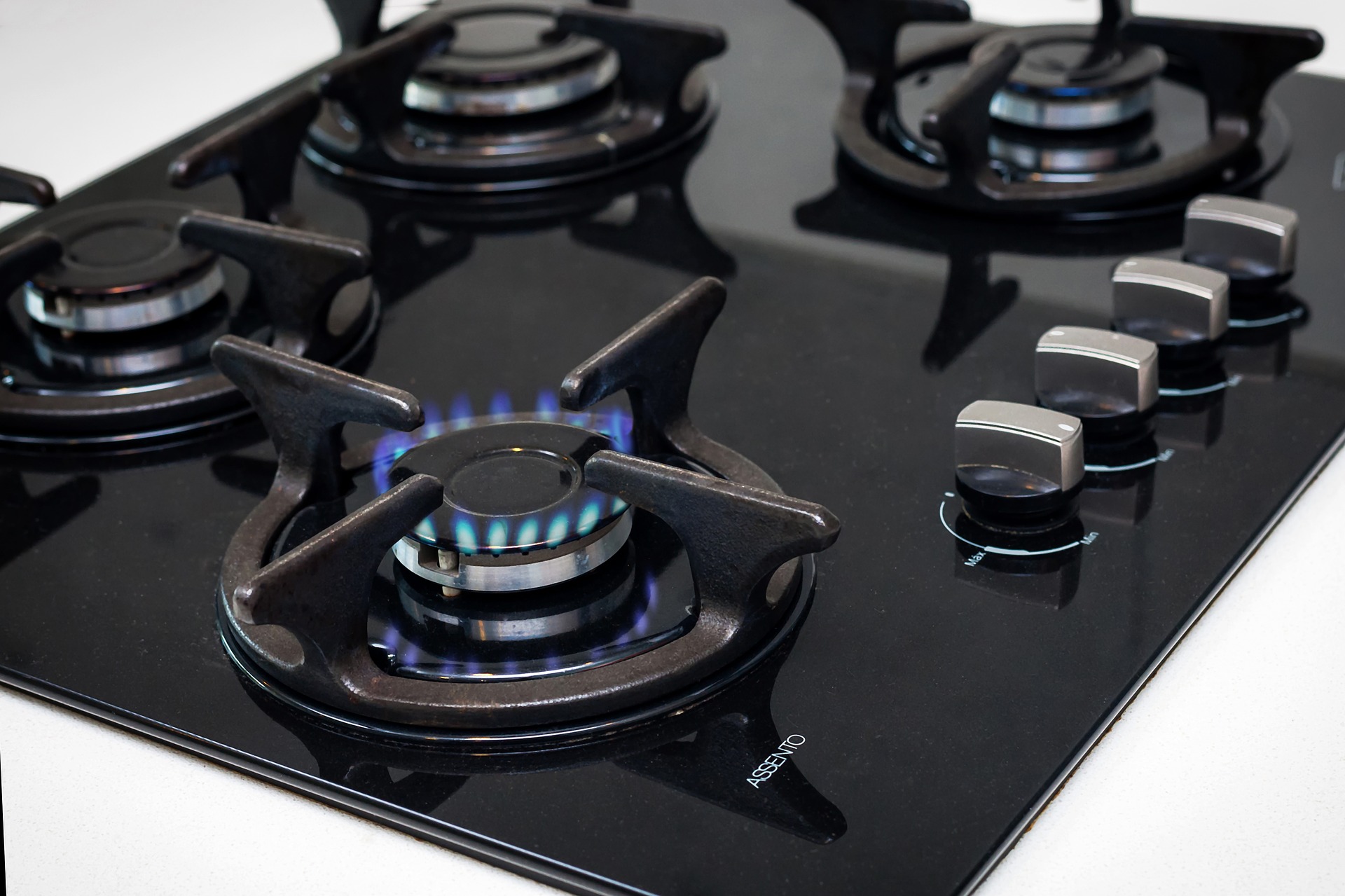Truth be told, I’ve never had a big preference for gas stoves or electric stoves, and I have had both.
Let’s lay out the pros and cons of each as we investigate the difference between gas stoves and electric stoves.
We’ll also touch upon the oven (oven + stove = range).
Gas stoves – pros:
- Can cook food quicker.
- Can cook food more evenly.
- Allow for easy increasing or decreasing of temperature.
- Are more energy efficient.
- Are cheaper in terms of operational costs.
- Ovens are good for broiling.
Gas stoves – cons:
- Are more expensive to buy and difficult to install.
- Are especially expensive to hook up if you don’t already have a gas line.
- Are more difficult to clean.
- Carry the risk of an open flame or gas leak that could lead to a fire.
- If a burner doesn’t turn on the stove is still releasing gas – it’s easy to leave a burner on unlit.
- Other than broiling, ovens aren’t the best – requires rotation and careful placement to get even cooking.
Electric stoves – pros:
- Are cheaper to buy up front (but more to operate).
- Fans and grills can be included.
- Can have aesthetically pleasing flat-top surfaces.
- There’s no risk of a fire or open flame.
- Water supposedly boils faster and simmering food is easier.
- Oven gives off a dry heat, ideal for roasting.
- Oven bakes food more evenly.
- There’s additional storage space underneath the oven.
Electric stoves – cons:
- If they don’t have a flat-top surface, they have heat coils.
- Heat coils are annoying and hard to clean.
- Don’t cook food as fast.
- Are slower to increase or decrease temperature.
- Glass can stain easily.
- Will be inoperable during a power outage.
With regards to the oven – I will say I notice a big difference there. When I had a gas range the oven was notorious for cooking food unevenly; I have better luck now with my electric oven.
If you’re wondering how to determine what spots in your oven are hotter than others to best get uniform baking you can do a bread test. This is smart to do regardless of what kind of oven you have, because even the most expensive ovens are not necessarily 350 degrees when they say they’re 350 degrees – they’re all a little bit different, and it’s best to get to know your own oven’s idiosyncrasies.
So, to recap:
Gas stoves are more expensive up front, but have cheaper operational costs. They cook food quickly and evenly, but the oven doesn’t. They carry the risk of an open flame or gas leak.
Electric stoves are cheaper up front, but more expensive to operate. They do not cook food as quickly or as evenly, but the oven does. There’s no open flame.
Personally, I think I would like my electric stove much better if it had the flattop surface instead of the coils.

very informative
I never knew that electric stoves are cheaper to buy! I always assumed that gas stoves were cheaper, but like you said, electric stoves most likely make up the difference with long run costs. I am building a new house and will need to get a new oven. Maybe I’ll consider a gas stove to save money in the long run.
I didn’t realize electric stoves are more expensive in the long run. Something to consider in my search. Thanks.